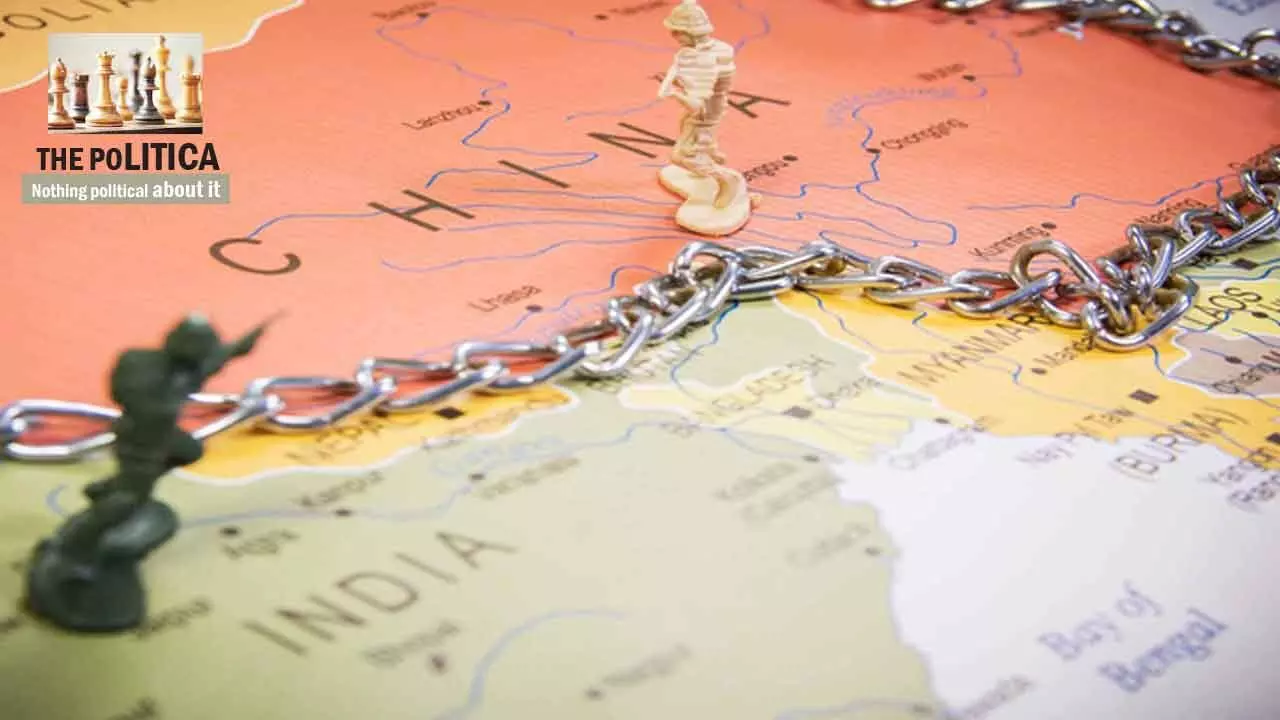Shatru Bodh: The key To Bharat's Defense Against Geopolitical Threats
As Bharat navigates complex geopolitical landscapes, the imperative of ‘Shatru Bodh’ and the need to respond decisively to external interference become crucial for national integrity and security
Shatru Bodh: The key To Bharat's Defense Against Geopolitical Threats

By strengthening its internal resilience, fostering a vigilant citizenry, and adopting proactive diplomatic measures, India can navigate the complex challenges of the 21st century and emerge as a global leader
In an era of increasingly complex conflicts, the ancient concept of ‘Shatru Bodh’ - or ‘knowing the enemy’ - has never been more relevant. This term was a focal point among participants and panellists at the recently concluded ninth edition of The Jaipur Dialogue (TJD), an annual summit popularly referred to by its patrons as Rashtravadiyon ka Mahakumbh (Gathering of Nationalists).
On the first day of TJD, during a panel discussion, Baba Ramdas, who runs a YouTube channel called Baba Ki Khari Khoti with over 160,000 followers, introduced the term ‘Shatru Bodh’ and called upon Bharat not only to identify but also to understand the strategies of its internal and external enemies.
For Bharat, this concept has become even more critical in today's geopolitical reality, where adversaries no longer hide behind the facade of diplomatic decency. Instead, they employ various strategies to meddle in the country's internal affairs, aiming to destabilize the nation by exploiting societal divisions. Why? Because an economically strong and militarily robust Bharat challenges the Western narrative. Therefore, they may go to any lengths to ‘Break Bharat.’
Subcontinent under Siege
Today, Bharat faces threats from three external forces—China, Pakistan, and Western influences—as well as from multiple internal enemies. There is an unusual convergence of interests among Western, Chinese, and Islamist forces in destabilizing Bharat, leading to what feels like a siege on the subcontinent. From Bangladesh to Pakistan, from Ladakh to the Maldives, and across the Bay of Bengal to the Arabian Sea, New Delhi finds itself in a strategic struggle, contending with multiple opponents, sometimes seemingly with one hand tied.
Understanding the Enemy's Tactics
While West has intervened to destabilize neighbouring countries—such as toppling Bangladesh's democratically elected government and installing a puppet regime or manipulating Pakistan's elections to keep popular leader Imran Khan out of power. The Chinese have propped up anti-India leaders in the Maldives and Nepal.
While, internally the divisive forces have influenced opinion leaders, social activists, Bollywood personalities, and journalists to shape public sentiment against the government and its policies. Their ultimate goal is to coerce the government into submission or replace it with puppet leaders. Military and geopolitical analysts describe this as fifth-generation warfare (5GW).
In the age of 5GW, conflicts extend beyond borders and traditional military engagement. Fifth-generation warfare focuses on creating instability through psychological operations, disinformation campaigns, and media manipulation. This warfare method aims to exploit a nation’s internal divisions, manipulate social media, spread misinformation, and incite protests to achieve destabilization—no physical combat is required to undermine a nation’s social, political, and economic stability.
One early example of narrative-driven warfare was the Arab Spring, where social media platforms enabled mass mobilization across North Africa and the Middle East. In India, similar tactics were used during the anti-CAA (Citizenship Amendment Act) and NRC (National Register of Citizens) protests, as well as the farmers' protests.
Letting the Enemy Know Our Intentions
Baba Ramdas, also known as Ajit Singh Pahalwan—a former wrestling coach—compares Bharat’s position to that of a king cobra, which, while generally peaceful, raises its hood and hisses at the first sign of danger, signalling its readiness to defend itself. In fifth-generation warfare, Bharat must not only understand who is driving these narratives but also make it clear that it will retaliate if necessary.
Our adversaries have frequently propped up separatists to push divisive agendas. Recently, Canadian and American-based terrorists have been promoting the Khalistan cause to stir unrest across India.
Identifying the Enemy’s Foot Soldiers
It is essential to identify the foot soldiers who propagate these biased narratives, whether for fame, financial gain, or ideological alignment. These individuals can be found in Bollywood among social media influencers, prominent journalists, academics, and social activists. Often, they receive international accolades or financial support to promote narratives that align with adversarial interests. This type of narrative manipulation often disguises itself as human rights advocacy but subtly works to destabilize society.
Countering the Threat: The Way Forward
Building an Army of Social Media First Responders: Given the sophisticated nature of fifth-generation warfare, traditional defence measures are inadequate. Bharat's response must include proactive steps to counteract information warfare, digital infiltration, and narrative manipulation. Recently, in an interview, National Security Advisor Ajit Doval encouraged nationalists to act as first responders to counter anti-Bharat narratives on social media before they snowball into misinformation tsunamis.
Protecting Institutions: Vital institutions like academia, media, and the judiciary must remain impartial and resilient against foreign influence. This requires scrutinizing foreign-funded organizations and media outlets that may act as conduits for adversarial narratives.
Change Non-Interference Policy: Bharat must send a clear message that any foreign powers that interfere in its internal affairs will be met with a firm and similar response. It will be an eye for an eye. Letting adversaries know of Bharat's intent to safeguard its interests is crucial for national integrity and security.
The concept of ‘Shatru Bodh’ underscores the urgent need for Bharat to recognize and understand the multifaceted threats posed by external and internal adversaries. It is not only important to understand our enemy but also to communicate to the adversary that any interference in our internal affairs will be met with an equal and decisive response.
(The author is Founder of My Startup TV)

